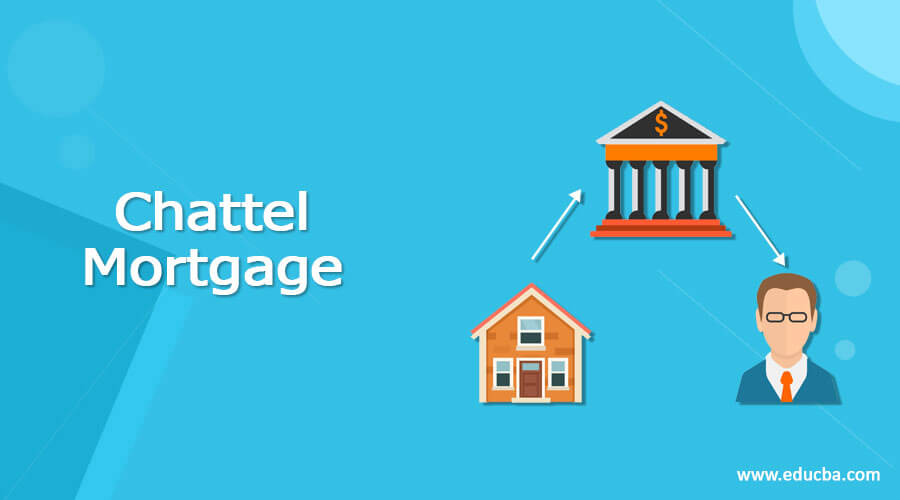Updated July 13, 2023

What is Chattel Mortgage?
The term “chattel mortgage” refers to a type of loan that is principally used to fund the purchase of business assets. It is similar to a regular mortgage where a lender provides funds to purchase the asset (known as a Chattel) with the major difference that the asset, in this case, is movable or mobile.
In addition, the mortgage is secured by the chattel, and the lender holds an ownership interest in it. In other words, if the borrower defaults on the chattel mortgage, then the lender can take possession of the funded property and sell it to pay off the loan.
Example of Chattel Mortgage
Let us understand this concept with the help of a hypothetical example. Let us assume that John is a contractor engaged in construction work. He plans to purchase two vehicles to be used for carrying construction material, and for that, he needs bank funding. A bank or a mortgage company can provide the fund and secure the loan using the chattel or the vehicles, which could be mini-vans, tow trucks, etc. The most important fact for the lender is that the assets that are used as collateral are mobile and can be sold off easily in the case of a default.
In fact, many businesses in Australia use chattel mortgages for purchasing new equipment and machinery. Since these equipment and machinery have a long lifespan, the repayment of the loan can be suitably spread over a longer time period. At Toyota Fleet Management, the chattel mortgages are often used for purchasing company cars.
Types of Chattel Mortgage
The chattel mortgages can be classified into various types based on the variety of movable property being funded. Some of the most common types are as follows:
- Chattel mortgage for vehicles: A chattel loan can be used to fund the purchase of a car or other vehicle to be used for business purposes. This type of loan is more popular in countries with a national goods and services tax (GST) because the borrowers can claim tax benefits due to GST-associated costs and depreciation of the vehicle.
- Chattel mortgage for equipment: A chattel loan can also be used for purchasing heavy equipment, such as forklifts, tractors, or other similar machinery. This type of loan is usually availed for farm equipment where the borrower can put the equipment to use immediately after the purchase. In this way, the borrower can pay off the loan with the money made with the use of the equipment.
- Chattel mortgage for manufactured homes: Manufactured homes, which were formerly known as mobile homes, are often financed with a chattel mortgage. Since these homes are movable and can be relocated using a chassis, these assets qualify for a chattel mortgage.
- Chattel mortgage for modular homes: Modular homes are another version of manufactured homes, but a little less mobile as these homes is usually placed on a more permanent foundation. Given that these homes are usually not moved once placed, these homes also qualify for a regular mortgage.
Tax Implications
The interest paid on the chattel mortgage and the depreciation charged on the asset can be claimed for a tax deduction based on how much of it is used for business purposes. Further, the GST included in the asset’s purchase price can also be claimed as the input tax credit.
What are Chattel Mortgages used for?
It is primarily used for the following purposes:
- Both companies and individuals use chattel mortgages to finance the purchase of new vehicles, equipment, or other similar movable property.
- Individuals offer their vehicles or other movable property as security, and in exchange, the lender provides funds to purchase the same asset.
- It is seen as an excellent source of short-term funding.
- It is an easy financing option for borrowers, especially those with poor credit history.
Advantages
Some of the major advantages are as follows:
- The interest rate for a chattel mortgage is lower than that of an unsecured loan as the former is secured by the chattel.
- The borrower can opt for a balloon/ lump sum payment at the end of the term, which lowers the monthly payment amount.
- Borrowers can claim tax deductions for interest expense and depreciation, which again depends on the extent of use of the asset for business purposes. The borrowers can even claim an input tax credit for the GST included in the purchase price.
Disadvantages
Some of the major disadvantages are as follows:
- It usually carries a higher interest rate compared to a secured loan.
- It has fewer consumer protections compared to a regular mortgage.
- In the case of a large balloon payment, the amount of interest to be paid over the term of the loan increases significantly.
Key Takeaways
Some of the key takeaways of the article are:
- In a chattel mortgage, the movable property purchased with the loan eventually secures the loan, and the lender holds an ownership interest in it until repayment of the entire loan.
- Besides heavy business equipment and machinery, manufactured and modular homes are also financed using chattel mortgages.
- Most chattel mortgages are more expensive than conventional mortgages but cheaper than unsecured loans.
Conclusion
So, it can be seen that a chattel mortgage is potentially a good financing option for borrowers seeking funds for purchasing heavy business equipment or even a manufactured home. However, these mortgages have their benefits and drawbacks that the borrowers must analyze to find the most suitable financing options.
Recommended Articles
This is a guide to Chattel Mortgage. Here we also discuss the definition, types, examples, and Tax Implications of Chattel Mortgage along with its advantages and disadvantages. You may also have a look at the following articles to learn more –

